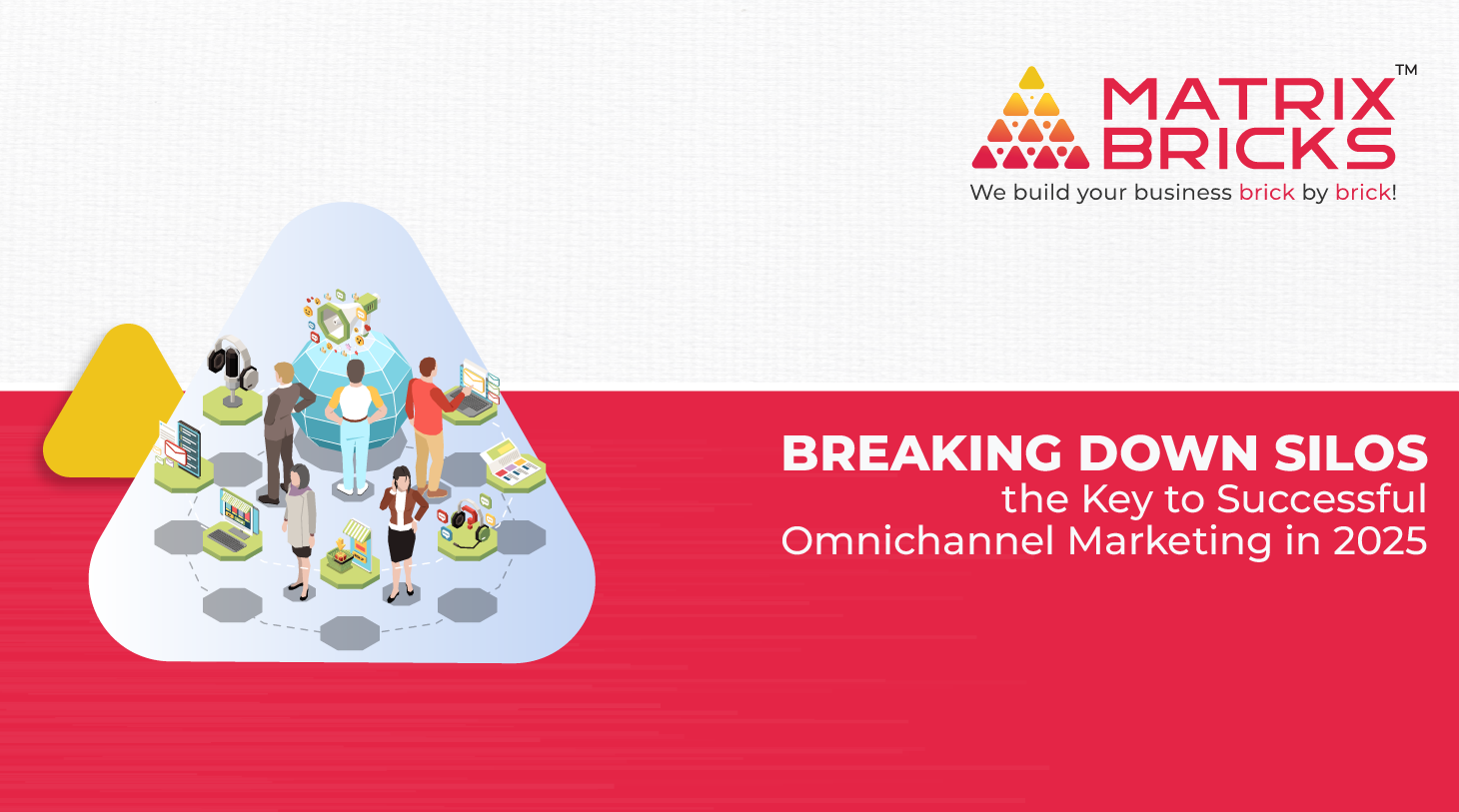
With customers now interacting with brands on various platforms, businesses cannot afford to work in silos. The future of 2025 and beyond belongs to integrated approaches toward customer engagement – an omnichannel marketing solution in which a seamless, uniform experience across all channels helps form deeper connections with the target audience and, therefore, fuels sustainable growth.
This blog delves into the heart of omnichannel marketing, why silo breaking is essential, and how businesses can build a successful strategy for the future.

The Shift from Multichannel to Omnichannel Marketing
Many businesses still use a multichannel marketing strategy, where channels like email, social media, and websites operate independently. While this allows for diverse outreach, it often results in fragmented customer experiences.
However, omnichannel marketing unifies all channels to create a single customer journey. Whether a customer begins interacting on Instagram, continues to your website, and completes the transaction in-store, the experience remains intact and fluid. This seamless transition makes the Omnichannel marketing solution essential for modern businesses.
Why Silos Hurt Your Marketing Efforts
Silos occur when departments or channels work independently without sharing data or insights. This may seem efficient within the confines of a siloed team, but in the broader business context, it brings about several drawbacks:
- Inconsistent Messaging: Customers get conflicting information from different channels, leading to clarity and satisfaction.
- Missed Opportunities: We often overlook a holistic view of customer behaviour, which can lead to some really valuable chances for personalised engagement.
- Inefficiencies: Siloed strategies and duplicated efforts increase costs and reduce effectiveness.
By breaking down silos, businesses can create a more collaborative environment, ensuring their omnichannel marketing strategy is aligned and effective.
Benefits of Omnichannel Marketing
Investing in an omnichannel marketing solution offers numerous advantages that can transform your business operations and customer relationships. Imagine the potential for improved customer experience, better retention, enhanced insights, and increased revenue. These benefits can truly revolutionize your business.
1. Improved Customer Experience
Consistency is the key to customer satisfaction. Omnichannel will ensure that the customer has an easy experience, whether it’s via email, social media, or in-store.
2. Better Customer Retention
Customers who feel valued through personalised and cohesive interactions are bound to be loyal to your brand.
3. Better Insights and Analytics
An integrated system allows for better data collection and analysis, offering a comprehensive understanding of customer behavior. This enables more focused and effective campaigns.
4. Increased Revenue
Businesses implementing omnichannel strategies often see increased conversion rates and average order values.
Building a Successful Omnichannel Marketing Strategy
Building an omnichannel strategy requires planning and execution. To help you get started, below is a detailed guide:
1. Understand Your Customer Journey
Map out the entire customer journey, identifying all touchpoints and channels. This includes online and offline interactions, from social media ads to physical store visits.
2. Integrate Your Systems
Invest in technology that integrates your data and operations across all channels. A robust customer relationship management (CRM) system is essential.
3. Personalise Your Messaging
Use the data gathered to provide personalized content at every customer journey stage. Customers will respond to messages that meet their needs and preferences.
4. Leverage Automation
Marketing automation tools streamline repetitive tasks, such as email follow-up, social media scheduling, and retargeting campaigns, ensuring your omnichannel marketing solution works efficiently.
5. Monitor and Optimise
Track your campaigns’ performance regularly and use data-driven insights to improve continuously. Customer preferences and behaviors change, and so should your strategy.
The Role of Technology
Technology is the foundation of every effective multichannel marketing strategy. With artificial intelligence (AI) and machine learning advancements, businesses can predict customer behavior, automate personalized experiences, and optimize their strategies in real-time.
For example, AI can analyse past purchases and browsing habits to recommend products a customer is most likely to buy, while machine learning can improve these predictions over time.
Tools like chatbots and virtual assistants also ensure customers receive immediate support across all channels, further enhancing their experience.

Choosing the Right Omnichannel Marketing Agency
Collaborating with a professional omnichannel marketing agency would be the turning point for businesses to adopt an omnichannel marketing approach. This ensures that expertise is involved in combining channels, developing integrated strategies, and using advanced technology to achieve expected outcomes.
Professionals who run the show ensure that while businesses are busy with core business, their marketing efforts are in capable hands. This reassurance allows you to focus on what you do best, knowing that your marketing strategy is in expert hands.
Real-Life Success Stories
Many brands have adopted omnichannel marketing to improve customers’ experiences and further growth. For example, a multinational retailer implemented its omnichannel strategy by integrating physical stores with an online presence. Customers could browse products online, check in-store availability, and return online purchases in-store. The result Improved customer satisfaction, higher sales, and stronger brand loyalty. This demonstrates the power of breaking down silos and aligning all touchpoints.
The result? Improved customer satisfaction, higher sales, and stronger brand loyalty. This demonstrates the power of breaking down silos and aligning all touchpoints.
The Future of Omnichannel Marketing
As we move further into 2025, the importance of omnichannel marketing will only grow. Customers will continue to demand seamless experiences and businesses that fail to deliver risk being left behind.
Emerging trends, such as voice search, augmented reality, and the Internet of Things, will add new dimensions to the modern experience. Adapting to innovations like these is key to staying ahead of the competition.
Breaking down the silos to achieve success is no longer just a trend but rather a necessity for businesses to survive in this competitive digital landscape. With a proper omnichannel marketing solution, you can develop cohesive and engaging experiences that resonate with the audience.
Whether building a new strategy or perfecting one already in place, an approach focused on the future will distinguish your business. With the physical and digital worlds blurring together, brands that succeed will be those that can fully realize a singular strategy that brings value to every touchpoint. Make 2025 the year you unlock the full potential of omnichannel marketing and position your brand for long-term success.





